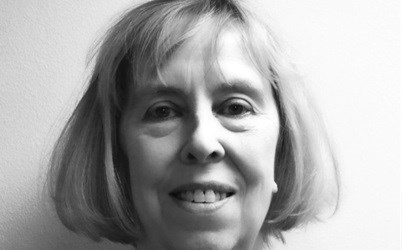Subscribe & Follow
#AfricaMonth
Independent TV audience measurement for Africa

Bizcommunity.com spoke exclusively to Jennie Beck, global director of media for TNS Global and Kantar Media. Beck was in Cape Town last week to attend the Kantar Media World Audiences Summit, taking place in Africa for the first time, to discuss the latest trends in audience measurement, as well as Kantar’s latest research and innovation in this critical media field.
Beck gave Bizcommunity a broad understanding of what the audience measurement challenges are in Africa. There are three things dominating audience measurement in Africa, she says:
- Current infrastructure in Africa and the challenges of media management.
- Politics.
- What is available.
“Number one is not really an African issue, each country has infrastructure challenges, it depends on the technology available. There are some markets where there are strong and single providers of satellite services - in South Africa, DStv is a huge part of the market, so there is the opportunity to use return path data; and a bigger slice of market for data to make sense.
“Some markets where the television ownership in the home is lower, television viewing is done outside of the home, so then you have to measure differently: people rather than device. This is a hugely complex continent with different challenges in different markets.”
On point two, Beck says many media owners and broadcasters across several African markets, up into the Middle East, are less interested in having audience measurement than agencies and brands.
“They are more resistant. Some collect their own data, some have own data, but also, an independent audience measurement system is transparent and your competitors will have access to your data and visa versa, so it will be more of an open trading environment and some broadcasters are suspicious of that,” Beck explained.
“But it means that those who are creating the greatest demand for independent audience measurement, are more likely to be global marketers who have nothing to plan with in African markets, and their agencies working alongside them. That is the political challenge.”
Infrastructure
Beck also referred to the patchy data in Africa being a problem: not just the media data, but also population data and other demographics.
“You need to represent the total population. That is what advertisers want, what agencies want. Otherwise we have no idea how to weight the data. We have to recognise the complexity and size of some of the markets in Africa.
“In most countries there is some form of media survey, often a diary or an interview. In the biggest countries it’s quite regular, but in others it’s sporadic. It’s expensive to run the research.”
Kantar is involved in the Kantar GeoPoll, in an attempt to do something quick on the continent and plug some of the data gaps.
GeoPoll, Kantar Media, and Cuende launched ‘Pan-African OOH’, the first data product to regularly measure consumption of Out of Home mediums across Africa, on 1 June 2016. Through a cutting-edge combination of satellite imagery and mobile survey data, Pan-African OOH measures traffic patterns and reach of billboards, urban furniture, and other OOH media - allowing brands, agencies, and media owners to accurately gauge the reach and effectiveness of their OOH advertisements.
After out of home and broadcast media, Kantar will expand the research to add print on soon, so that the four main media (TV, radio, print and OOH) will be reported on together on a daily basis.
Beck says it is an exciting step: “There is really no high frequency planning data in the market. It is also a way of allowing us to represent a wider population with wider data.”
What is needed in Africa is fast reliable TV and radio data, particularly as radio is often the biggest impact medium in Africa, Beck points out.
Independent measurement
Television is where advertisers know TV will require independent, granular measurement, Beck adds. Which is where Kantar Media comes in.
“We already do return path data in many African countries. We are looking at how you would introduce TV audience measurement in major African markets. We need to find someone else to sponsor that. What we will probably be looking at is some kind of hybrid: small TV panels in metros that can control daily output; with TV panel reporting on day after/Geopoll reporting same time, and linking the data to have a currency for the whole country.”
Beck says Nigeria will get a pilot TAM (television audience measurement) study later this year, reporting into 2017 when the data will be released, although there were quite a few issues of methodology, size, test city and infrastructure still to resolve.
“Because Nigeria has high TV penetration, we think we can use an in home meter, a more basic version of the People Meter. It will be able to produce TV ratings the day after. If we can do it there, then we can do it anywhere… We have big global advertisers that are keen on seeing this started.”
Follow the on-going conversation from the Kantar World Audiences Summit, Cape Town, on #KantarOnAir.






